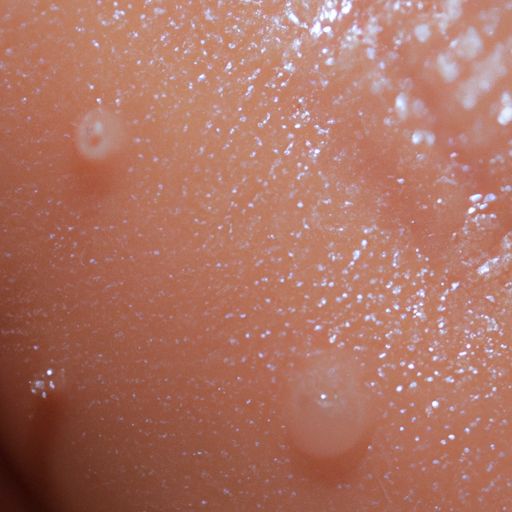As a medical professional, I have encountered countless patients battling the persistent issue of oily skin. This condition, characterized by an overproduction of sebum from sebaceous glands, can lead to a shiny complexion, enlarged pores, and a higher propensity for acne breakouts. However, with a comprehensive understanding of the condition and an effective skincare regimen, it is possible to manage oily skin and improve your overall skin health.
Firstly, it is crucial to understand that oily skin is not necessarily a sign of poor hygiene or neglect. It is primarily caused by genetic factors and hormonal fluctuations. During puberty, pregnancy, or periods of high stress, the body’s production of androgens can increase, leading to an overproduction of oil. Additionally, environmental factors such as humidity and heat can exacerbate oily skin.
Contrary to popular belief, excessively washing your face or using harsh products can actually worsen oily skin. This is because when the skin is stripped of its natural oils, it responds by producing even more oil to compensate. Therefore, it is recommended to cleanse your face twice a day with a gentle, oil-free cleanser. Avoid scrubbing your face vigorously as it can irritate the skin and stimulate oil production.
Incorporating a toner into your skincare routine can also help control oiliness. Toners can remove residual oil and dirt that may have been left behind after cleansing. Look for toners that are alcohol-free to prevent drying out your skin.
Moisturizing is another crucial step that should not be skipped, even if your skin is oily. Dehydrated skin can trigger more oil production. Opt for oil-free and non-comedogenic moisturizers that hydrate your skin without clogging your pores.
Exfoliation is a beneficial practice for those with oily skin as it helps remove the buildup of dead skin cells that can clog pores and increase oiliness. However, it should be done sparingly, ideally once or twice a week, to avoid irritating the skin.
Diet also plays a significant role in skin health. Consuming a balanced diet rich in fruits, vegetables, lean proteins, and whole grains can improve your skin’s overall health and potentially help control oil production. It’s also advisable to limit the intake of oily, fried foods and sugary drinks that can trigger oil production.
Lastly, always protect your skin from the sun. Sun damage can lead to an increase in oil production and cause other skin problems. Use a broad-spectrum sunscreen with an SPF of at least 30. Look for sunscreens labeled as ‘non-comedogenic’ or ‘oil-free’ to prevent clogged pores.
In conclusion, managing oily skin requires a combination of a consistent skincare routine, a balanced diet, and lifestyle modifications. It’s not about completely eliminating oil from your skin, but rather controlling its production to maintain a healthy balance. If your oily skin persists or leads to severe acne, it’s best to consult with a dermatologist who can provide more personalized treatment options. Remember, every skin type is unique and understanding your skin is the first step towards winning the battle against oily skin.



